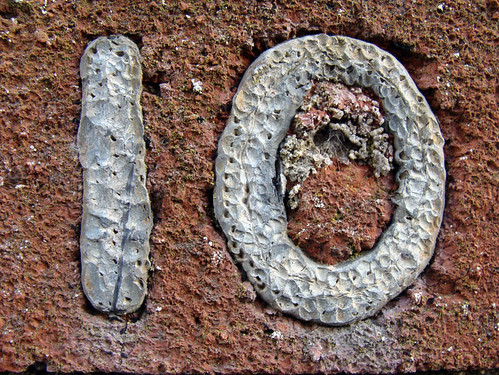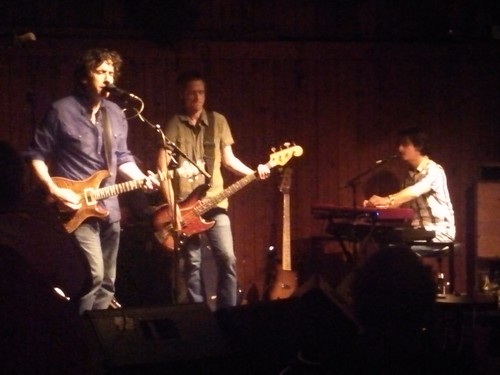 Track coaches may have had it right all along.
Track coaches may have had it right all along.
I am one of the first people that will advocate for science-based strategies for training and injury recovery. But I am not averse to acknowledging what may have been done well in the past, without the benefit of sports science. This is where the track coach of yore comes in.
You see, track coaches in the 1970's probably had a lot of sound concepts already in place to make better runners, long before the running community evolved into a mass of fads, testimonials and marketing plans.
 The year 2013 is now officially a part of history. Hard to believe, but another year has come and gone, leaving us with plenty of challenges and beautiful memories along the way.
The year 2013 is now officially a part of history. Hard to believe, but another year has come and gone, leaving us with plenty of challenges and beautiful memories along the way.
Once again, I have compiled my annual Top 10 list. In 2013, my goal was not only to write consistently but to also write more focused posts. With that in mind, I had fewer overall posts this year: 117 (compared to 172 in 2012). Hopefully that also makes it a little easier for you, the reader, to consume regularly!
I donít necessarily believe that the posts with the most traffic are my best posts or my best writing, but it provides a good starting point for the Top 10. Iíve also added five personal favorites, just to round-out the list. So without further ado, here are my Top 10 posts of 2013. Count them down, and enjoy!
 The pages of my blog have been eerily quiet recently. You could almost hear a pin drop around here. I could use the holiday season as a fine excuse. But it isn't the presence of festive cheer that makes my writing world silent of late.
The pages of my blog have been eerily quiet recently. You could almost hear a pin drop around here. I could use the holiday season as a fine excuse. But it isn't the presence of festive cheer that makes my writing world silent of late.
You see, the evil crud hath struck me down.
Gone are the days when you had a little stuffy nose or tickle in your throat. Nowadays, you get some bizarre strain of strange upper respiratory crud that seems to wipe you out, drain you of your energy, and put you in a haze for a few days. Or longer.
Welcome to my world of late.
 The flicker of an idea had been there for some time, but the flame was doused with gasoline when I read the article from "Guitar Player" magazine. It was entitled "Big Guitars From Austin". The issue: December 1986.
The flicker of an idea had been there for some time, but the flame was doused with gasoline when I read the article from "Guitar Player" magazine. It was entitled "Big Guitars From Austin". The issue: December 1986.
Stevie Ray Vaughan and his smoldering blues guitar had initially brought Austin to my attention in 1983 or 1984. But when I read this article, I realized that Austin was nirvana for guitar players. There was a seemingly endless list: Eric Johnson, Omar Dykes, Denny Freeman, Derek O'Brien, Doug Sahm, Jimmie Vaughan, W.C. Clark. Apparently, this was a city that I needed to explore - pronto.
But looking back on that article, there is one musician that now truly stands out in a sea of Austin six-string guitar slingers: David Grissom.
 Rest and ice. Rest and ice. Rest and ice. The broken record plays "rest and ice" repeatedly. It is a phrase uttered by injured athletes and clinicians around the world. And it doesn't matter if you are an elite athlete or a weekend warrior. Same record.
Rest and ice. Rest and ice. Rest and ice. The broken record plays "rest and ice" repeatedly. It is a phrase uttered by injured athletes and clinicians around the world. And it doesn't matter if you are an elite athlete or a weekend warrior. Same record.
If you are active, then chances are good you have sustained some form of injury in your sport history. Chances are just as good that you have been told to "rest and ice" by any number of clinicians.
With the state of sport science, it's time for the collective sports wisdom to change. Rest and ice is not the solution.
 There is nothing more amusing than a cold front barreling into Austin in December. It can certainly be an ominous proposition as freezing rain can shut the city down in the blink of an eye. Although I grew up shoveling snow from my doorstep, removing a half inch slab of ice from your car in the morning can be a daunting task indeed.
There is nothing more amusing than a cold front barreling into Austin in December. It can certainly be an ominous proposition as freezing rain can shut the city down in the blink of an eye. Although I grew up shoveling snow from my doorstep, removing a half inch slab of ice from your car in the morning can be a daunting task indeed.
A week prior to the impending front, meteorologists were projecting the end of the world - or the winter wonderland equivalent of it. As it turned out, it was all much ado over almost nothing - again. The fear and paranoia of the impending doom made the whole experience far worse than it really needed to be.
Please, oh please, could we have a voice of climatological reason in the deep south?
In the meantime, grab a cup of hot cocoa and get ready for the next episode of the Rhubarb Report.
 We hear the phrases bantered about by physical therapists, lobbyists, and legislators alike: unfettered direct access, restricted direct access, and many other state-dependent variations on a similar theme.
We hear the phrases bantered about by physical therapists, lobbyists, and legislators alike: unfettered direct access, restricted direct access, and many other state-dependent variations on a similar theme.
There is oftentimes much rejoicing when physical therapists gain some "degree" of access for consumers. Celebrations take place in the streets. The proclamations of "another state with patient access" can be heard resounding through the valleys.
But there is a significant difference between access - and permission.
 "Running Injuries: Etiology And Recovery- Based Treatment" (co-author Bridget Clark, PT) appears in the third edition and fourth editions of "Clinical Orthopaedic Rehabilitation: A Team Approach" by Charles Giangarra, MD and Robert C. Manske, PT.
"Running Injuries: Etiology And Recovery- Based Treatment" (co-author Bridget Clark, PT) appears in the third edition and fourth editions of "Clinical Orthopaedic Rehabilitation: A Team Approach" by Charles Giangarra, MD and Robert C. Manske, PT.
 Allan Besselink, PT, DPT, Ph.D., Dip.MDT has a unique voice in the world of sports, education, and health care. Read more about Allan here.
Allan Besselink, PT, DPT, Ph.D., Dip.MDT has a unique voice in the world of sports, education, and health care. Read more about Allan here.
 Top 5 finalist in three categories: "Best Overall Blog", "Best PT Blog" and "Best Advocacy Blog".
Top 5 finalist in three categories: "Best Overall Blog", "Best PT Blog" and "Best Advocacy Blog".